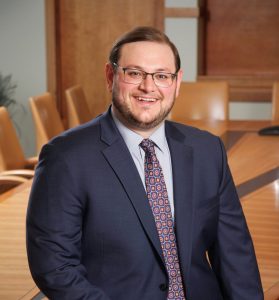Seventh Circuit Rejects Students’ Claim that University’s Refusal to Refund Fees During COVID Closures Amounts to Constitutional Violation
Public bodies deal with many of the same legal issues as private enterprises—plus a host of unique risks that arise because they are public actors. Public bodies therefore must take care to ensure that they are not violating the protected constitutional rights of their citizens, employees, contractors, or (in the case of schools) students. A new iteration of constitutional claims against public bodies arose in spring 2020, with colleges closing their campuses due to the COVID-19 pandemic, while continuing to charge students for various campus facility fees. One such claim was rejected by the Seventh Circuit on May 27, 2022 in Thiele et al. v. Board of Trustees of Illinois State University et al., Seventh Circuit Case No. 21-3017.
In Thiele, the plaintiff alleged that Illinois State University (“ISU”) charged a mandatory fee for on-campus facilities and programs. Id. at 1. When COVID hit, the campus shut down pursuant to an order of the Illinois Governor. ISU refunded some, but not all, of the fee. Two students sued, alleging that ISU’s refusal to refund the full on-campus fee amounted to a violation of the Takings Clause (of the Fifth Amendment) and the Due Process Clause (of the Fourteenth Amendment). Id. at 2. The students asserted claims under 42 U.S.C. §1983, which creates a civil cause of action for certain constitutional violations.
The district court dismissed the claims, and the Seventh Circuit upheld the dismissal. In doing so, the Seventh Circuit distinguished the more common scenario where a plaintiff alleges that they are entitled to notice and an opportunity to be heard before being deprived of a protected constitutional right. Id. For example, a student accused of academic misconduct may be entitled to a hearing before they are expelled. Unlike that common scenario, in Thiele, the “students [did] not want hearings.” Id. Nor could they: “The University lacked authority to violate the Governor’s [shut down] orders. On-campus education was not going to happen.” Id.
Instead, the court held, “[w]hat the students want is substantive—enforcement of their asserted right to a full refund of the Mandatory Fee—rather than notice and an opportunity for a hearing.” Id. at 4. But all students received an equal refund. Id. Therefore, the university’s action was a “legislative rather than an adjudicative action, and the Due Process Clause does not require personal hearings for decisions that establish or interpret rules governing groups of people.” Id.
The Seventh Circuit held that the students’ relief lies only in state law claims: “the Constitution does not ensure that states keep all of their promises, any more than it ensures that states observe all of their laws. A violation of a state law or a state contract is just that—a violation of a state entitlement, for which the remedy lies under state law.” Id. at 3. Therefore, the Seventh Circuit—just like the district court—dismissed the federal constitutional claims while telling the plaintiffs that they were free to go to state court and assert state law claims.
Thiele shows that plaintiffs will go to great lengths to invoke a constitutional violation. And understandably so—a constitutional claim under 42 U.S.C. § 1983 can circumvent certain immunities that public bodies have under state law and allows the prevailing plaintiff to recover the attorneys’ fees that they incurred in the suit. However, Thiele also shows that plaintiffs should be thoughtful about whether their claims truly amount to a constitutional claim—otherwise, they may litigate federal claims for years, only to get sent back to state court.




